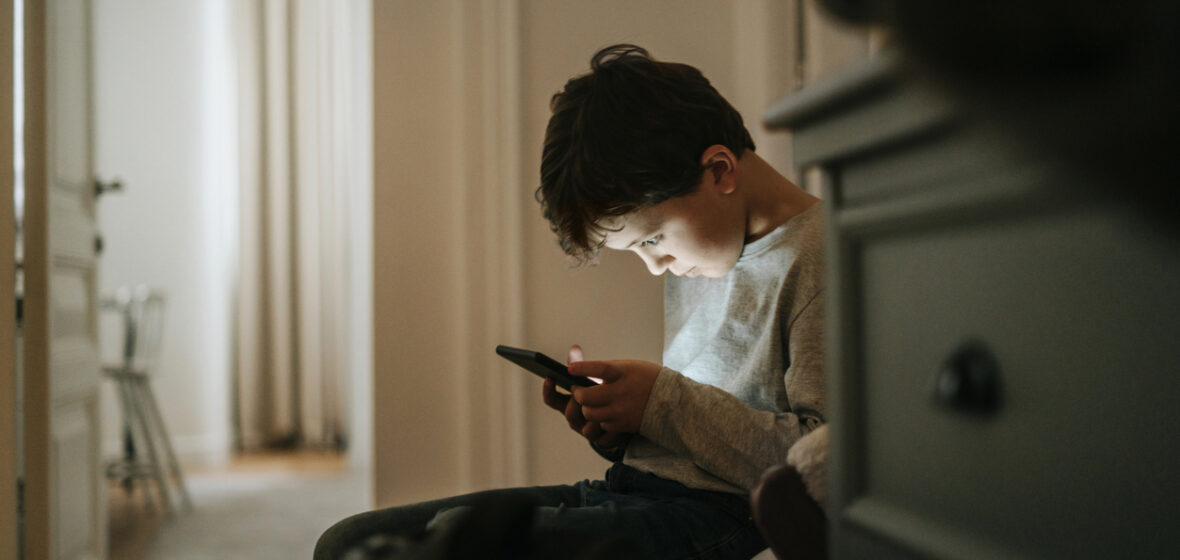NSW has a fines problem, particularly when it comes to kids. The Revenue NSW Fines Dashboard shows that last financial year (2022/2023) over 26,000 ‘on-the-spot’ fines — worth almost $7 million — were issued to children under 18 years of age.
Most of these penalty notice recipients were still at school with no (or very little) income. Yet in this State, there are no caps on penalty notice fines that can be set for children. For most ‘offence’ categories, children are charged the same financial penalty as an adult with a full-time salary.
We recently completed a study of penalty notices given to children during the COVID-19 public health crisis. For most people, the pandemic is in the rear-vision mirror. However, our study shows that heavy-handed policing and excessive financial punishment of children was not an aberration or unique to an unprecedented public health crisis. For too many children, fines issued by police (and transit officers) are an ongoing part of life.
Events of the COVID-19 era remind us that fines imposed by way of penalty notice are a massively and under-recognised form of punishment. They are disproportionately issued in areas of socio-economic disadvantage which serves to exacerbate existing challenges and forms of marginalisation and exclusion.
This article shares the findings and recommendations from our report, Children and COVID-19 Fines in NSW. These are underpinned by a mixed methods research design that involved: review of the relevant literature; examination of the making of Public Health Orders (PHOs) pursuant to the Public Health Act 2010 (NSW) (and the setting of fine amounts); analysis of the available statistical data on how and where COVID-19 PHOs were enforced against children in NSW; interviews with lawyers and allied professionals with experience representing or working with child clients who received PHO penalty notices; and targeted analysis of alternative jurisdictional approaches.
In documenting what NSW children experienced during the pandemic, we seek to underscore the gravity of these effects, and support the case for reform of the penalty notice system.
The statistical picture
From March 2020 until September 2022, 3,628 children in NSW received penalty notices for suspected breaches of COVID-19 PHOs. 25% (900 penalty notices) were to children aged 15 or younger, with the youngest being just 10 years of age. Most of these fines were $1,000, with some as high as $5,000. By comparison, the maximum fine the NSW Children’s Court can impose where a child is found guilty of an offence is $1,100.
Almost all PHO offences did not differentiate between penalties for adults and children. The exception was for some mask wearing rules — which were age specific. We found, however, that police often issued penalty notices to children for failing to wear a mask in specific settings (e.g. public transport) which did not differentiate the fine value between adults and children.
Under the Young Offenders Act 1997 (NSW) diversionary options are to be preferred for children. We found that during the height of the ‘Delta Wave’ (July-September 2021), this approach was sidelined in favour of ‘zero tolerance’ actively encouraged by the then NSW Police Commissioner. In January 2021, PHO enforcement actions against children were rare and 20 times more likely to take the form of a warning or caution rather than a penalty notice. By contrast, in August 2021, police handed out to children twice as many penalty notices (1100 in total) as warnings/cautions.
Most COVID-19 penalty notices were issued to children in western and south-western Sydney experiencing high levels of relative socio-economic disadvantage and histories of over-policing. Seven of the ‘top 10’ LGAs for penalty notice issuance in the period April 2021 to March 2022 were in this category. Children received the highest number of fines in the Blacktown (425) and Penrith (208) LGAs.
What is the message that we’re trying to tell young people when they get a fine and, really, they’re not going to pay it? They ignore it. It gets worse and it just compounds a lot of the other issues that creep in – issues that they’re unable to resolve because they have these outstanding fines.
Interviewee in Children and COVID-19 Fines in NSW: Impacts and Lessons for the Future Use of Penalty Notices
Qualitative insights from the coal-face
These statistics, although important, tell only part of the story. We spoke to lawyers, youth workers and community workers with first-hand experience assisting kids on the receiving end of COVID-19 policing. Here we highlight three insights that apply to fines generally.
First, COVID-19 PHO fines were experienced as yet another tool to target already over-policed kids. Children in ‘areas of concern’ in western and south-western Sydney – including Aboriginal children, children experiencing disadvantage or children otherwise ‘known’ to police – experienced ‘more of the same’. There was also a ‘net-widening’ effect: children who had not previously had criminal justice system contact found themselves in the sights of the police. The larger lesson is that heavy-handed policing contributes to negative police-citizen relationships.
Second, COVID-19 penalty notices exacerbated existing fine debt and associated impacts for children, including preventing a person from being able to obtain a driver’s license.
Third, interviewees told us that that the biggest lesson to take from the COVID-19 experience is that it is wrong to issue penalty notices to children. As they are generally not age-adjusted or means-tested, and as most children have no capacity to pay, the main impact of on-the-spot fines is to compound disadvantage.
Lessons from other jurisdictions and towards best practice
A sobering insight from our NSW research is: it didn’t have to be like this. All Australian jurisdictions took COVID-19 seriously but adopted different approaches to how best to promote children’s compliance with PHOs, including prioritising engagement and education. Most did not rely on punishing children with financial penalties.
Criminal justice problems can appear intractable. But this is not the case when it comes to penalty notices and children. NSW can learn from the less punitive approaches adopted by other Australian states and territories, both in the COVID-19 context and generally. We distilled a ‘best practice’ from these jurisdictions, which includes:
- prioritising education and support over punishment
- setting a minimum age for penalty notice issuance (preferably 18, but at least 16 years of age); and
- tailoring fine amounts to reflect children’s unique financial and social circumstances.
We know how to fix this problem. We now need politicians to act.
The authors of this article are the authors of the Children and COVID-19 Fines in NSW: Impacts and Lessons for the Future Use of Penalty Notices report




